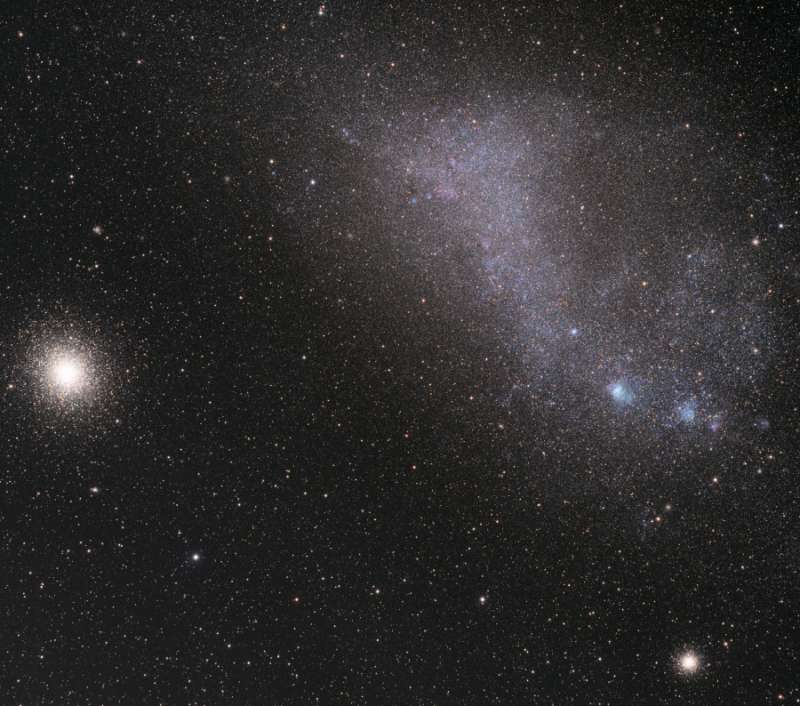
|
Credit & Copyright: Bogdan Jarzyna
Explanation:
Portuguese navigator
Ferdinand Magellan and his crew had plenty
of time to study the southern sky during the
first circumnavigation of planet Earth.
As a result, two celestial wonders
easily visible for southern hemisphere skygazers
are known as the Clouds of Magellan.
These cosmic clouds are now understood to be dwarf
irregular galaxies,
satellites
of our larger spiral Milky Way Galaxy.
The Small
Magellanic Cloud
actually spans 15,000 light-years or so
and contains several hundred million stars.
About 210,000 light-years away in the constellation
Tucana,
it is more distant than other known Milky Way
satellite galaxies, including the
Canis Major
and
Sagittarius
Dwarf galaxies and the
Large
Magellanic Cloud.
This
sharp image also includes two foreground globular
star clusters NGC 362 (bottom right) and 47 Tucanae.
Spectacular 47 Tucanae
is a mere 13,000 light-years away and seen here to the left of the
Small Magellanic Cloud.
Take a short
survey about viewing astronomy images on mobile devices.
|
January February March April May June July August September October November December |
| ||||||||||||||||||||||||||||||||||||||||||||||||
NASA Web Site Statements, Warnings, and Disclaimers
NASA Official: Jay Norris. Specific rights apply.
A service of: LHEA at NASA / GSFC
& Michigan Tech. U.
Based on Astronomy Picture
Of the Day
Publications with keywords: small Magellanic cloud - SMC - 47 Tuc
Publications with words: small Magellanic cloud - SMC - 47 Tuc
See also:
